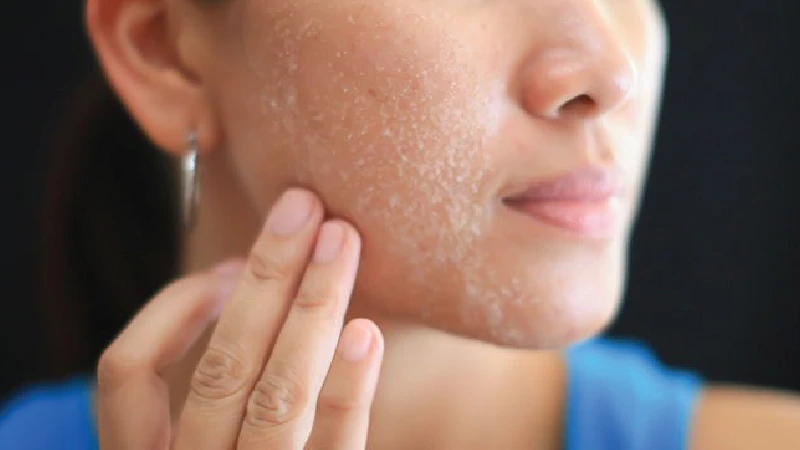Are you tired of dealing with dull and rough skin? It’s time to say goodbye to these pesky problems once and for all! Exfoliation is the key to achieving a glowing complexion, but it’s not just about scrubbing away dead skin cells. In this blog post, we’ll explore the amazing benefits of exfoliation that go beyond just surface-level improvements. From boosting circulation to preventing ingrown hairs, there are plenty of reasons why adding exfoliation into your skincare routine can make a world of difference. Get ready to experience smoother, brighter, and healthier-looking skin – let’s dive in!
What is Exfoliation?
Exfoliation is the process of removing dead skin cells from the surface of your skin. This can be done mechanically, with a physical exfoliant like a sugar scrub or loofah, or chemically, with an acidic product like glycolic acid. Exfoliation has numerous benefits for your skin, including improved texture, reduced dullness, and minimized pores.
Regular exfoliation can help to brighten your complexion and give you glowing skin. It also helps to unclog pores and prevent them from becoming enlarged. Exfoliating on a regular basis can also help to reduce the appearance of fine lines and wrinkles. In addition, by removing dead skin cells, exfoliation can help to prevent breakouts.
If you have sensitive skin, it’s important to be gentle when exfoliating. Use a soft washcloth or cotton pad when applying an exfoliant, and avoid scrubbing too hard. If you have dry skin, you may want to limit exfoliation to once or twice a week. Oily and combination skin types can generally tolerate more frequent exfoliation.
Different Types of Exfoliation
There are many different types of exfoliation, each with its own unique benefits.
One of the most popular types of exfoliation is mechanical exfoliation, which uses an abrasive material to slough off dead skin cells. This type of exfoliation can be done manually with a brush or cloth, or with an electronic device such as a Clarisonic brush.
Another popular type of exfoliation is chemical exfoliation, which uses chemicals to loosen the bonds between dead skin cells so they can be sloughed away. Chemical exfoliants include glycolic acid, lactic acid, salicylic acid, and fruit enzymes.
Physical exfoliation is another option, which uses small beads or other particles to mechanically scrub away dead skin cells. This type of exfoliation can be done with a physical scrub or with an electronic device such as a microdermabrasion machine.
Finally, there is also natural exfoliation, which uses natural ingredients such as sugar or coffee grounds to gently slough away dead skin cells. Natural exfoliants are usually gentler on the skin than other types of exfoliants and are often suitable for sensitive skin types.
Benefits of Exfoliation
If you want to achieve smooth and glowing skin, exfoliation is key. Here are some amazing benefits of exfoliation that you’ll love:
1. Exfoliation removes dead skin cells that can accumulate on the surface of your skin, causing it to look dull and rough. By regularly exfoliating, you’ll be able to keep your skin looking fresh and radiant.
2. Exfoliation can also help to unclog pores and prevent breakouts. When dead skin cells build up on the surface of your skin, they can clog your pores and lead to breakouts. Exfoliating regularly will help to keep your pores clear and reduce the likelihood of breakouts occurring.
3. Exfoliation can also help to improve the appearance of wrinkles and fine lines. As we age, our skin produces less collagen and elastin, which leads to the formation of wrinkles and fine lines. Exfoliating helps to remove the dead skin cells that can exacerbate the appearance of these signs of aging.
4. Finally, exfoliation can help to increase circulation, giving your skin a healthy glow. When you exfoliate, you stimulate blood flow to the surface of your skin, which gives it a natural flush and healthy glow
How to Exfoliate Your Skin
Exfoliating your skin is important for keeping your complexion looking bright and smooth. Here are some tips on how to exfoliate your skin:
1. Choose the right product: There are many different types of exfoliating products on the market. Be sure to choose one that is appropriate for your skin type. If you have sensitive skin, look for a product that is labeled “for sensitive skin.”
2. Use it properly: Follow the directions on the product label carefully. Some products should be used once a week, while others can be used daily.
3. Be gentle: Don’t scrub too hard when you are exfoliating your skin. This can damage your skin and lead to irritation.
4. Moisturize afterwards: After you’ve exfoliated your skin, be sure to apply a moisturizer to help keep your skin hydrated and protected from the elements.
Recipes for Homemade Exfoliators
If you’re looking for a way to achieve softer, smoother, and more youthful-looking skin, exfoliation is key. But instead of using harsh store-bought scrubs loaded with chemicals, why not make your own natural exfoliator at home? Not only is it cheaper, but you’ll also know exactly what’s going into your product.
There are two main types of exfoliants: physical and chemical. Physical exfoliants work by sloughing off dead skin cells with friction, while chemical exfoliants use ingredients like acids and enzymes to break down the bonds between cells. Both have their benefits, but for the purposes of this article, we’ll focus on physical exfoliators.
Here are some simple recipes for homemade physical exfoliators that you can make with ingredients probably already have in your kitchen:
1. Sugar Scrub: Mix together 1 cup of sugar with ½ cup of olive oil or coconut oil. Add a few drops of essential oils if desired. Massage over damp skin in a circular motion, then rinse off with warm water.
2. Coffee Scrub: Mix together 1 cup of coffee grounds with ¼ cup of coconut oil or olive oil. Add a few drops of essential oils if desired. Massage over damp skin in a circular motion, then rinse off with warm water.
3. Oatmeal Scrub: Mix together 1 cup of oatmeal with ½ cup of honey and
Conclusion
Exfoliation is an important part of keeping your skin looking and feeling healthy. With regular exfoliation, you can get rid of dirt and impurities that cause dullness and roughness. Plus, it helps with unclogging pores, which prevents breakouts. The benefits go beyond just the physical aspect—exfoliating can also help to improve overall health by stimulating blood flow and encouraging the production of new cells. So if you’re looking for a way to give your skin some extra TLC, then try adding exfoliation into your routine today!










